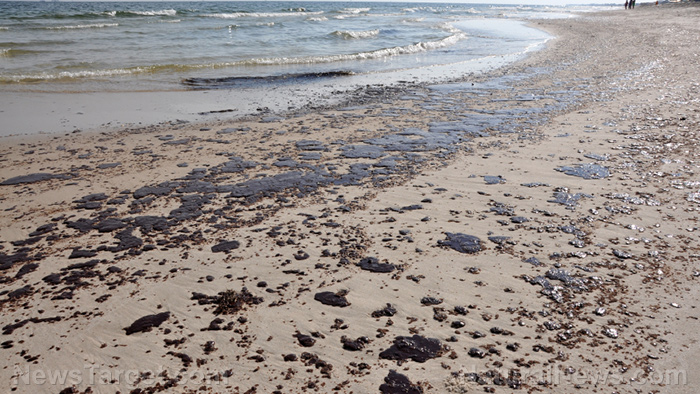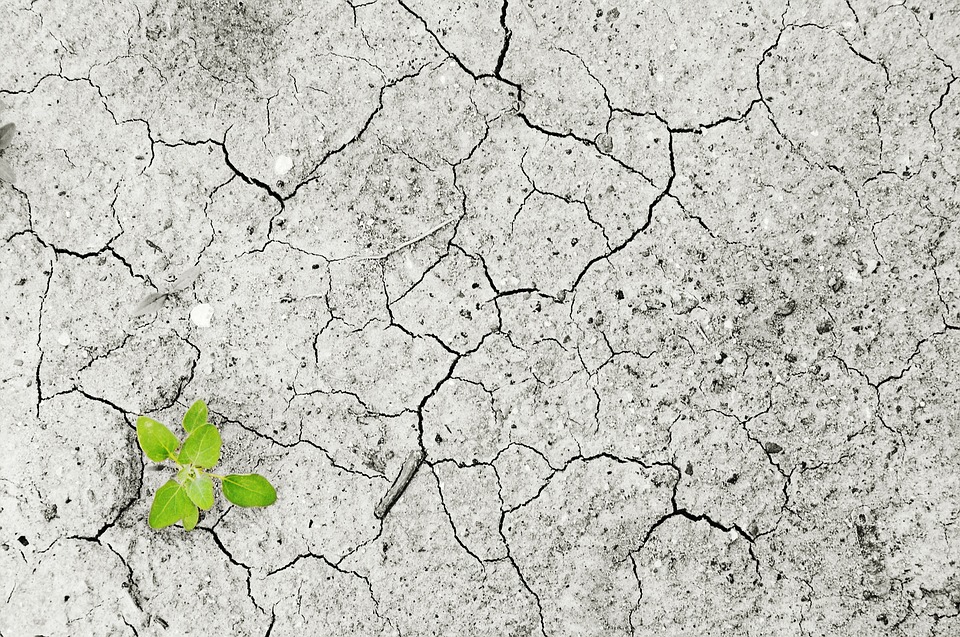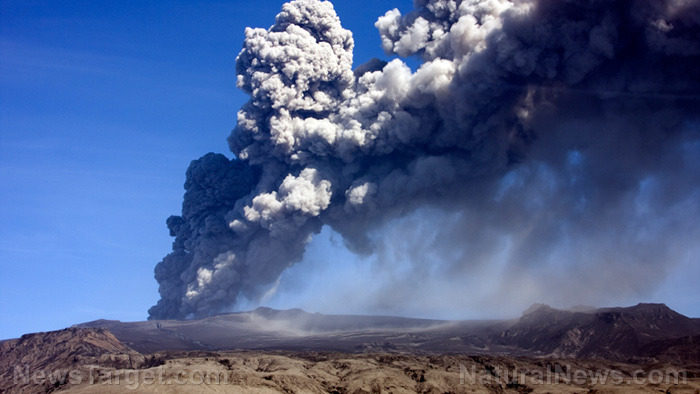Toxic tar globs litter Israel’s beaches due to massive oil spill
03/01/2021 / By Divina Ramirez

Toxic, black globs of tar started washing up on beaches along Israel’s Mediterranean coast on Feb. 18 due to an offshore oil spill, according to a recent report from Live Science.
The spill affected over 100 miles, or roughly 90 percent, of Israel’s Mediterranean coastline. Authorities are yet to identify the culprit responsible for what they said was one of the worst ecological disasters Israel has seen. The government closed all beaches along the coast to the public on Feb. 22 because of health concerns.
Thousands of volunteers showed up at the affected beaches to remove the tar globs after environmental groups asked the public for help. Israeli soldiers were also sent to help with the cleanup efforts. But due to the massive scope of the spill, Israel’s Nature and Parks Authority (INPA) fears cleanup could take months, if not years.
The Environmental Protection Ministry added that the country may be looking at roughly 1,100 tons of tar that washed ashore. Based on satellite images from the European Maritime Safety Agency (EMSA), the spill had very likely originated around 31 miles off Israel’s Meditteranean coast.
Toxic sludge could be poisoning marine animals
It is still too soon to determine the exact impact of the oil spill on local marine wildlife. But it doesn’t look good since authorities suspect that a 55-foot-long fin whale that washed up dead on a beach in southern Israel might have died from ingesting tar.
Authorities surmised this after INPA veterinarians performed a necropsy and found black, viscous liquid in the whale’s lungs and stomach. Scientists are testing samples to determine if the liquid is from the oil spill.
Distressing pictures of tar-covered juvenile sea turtles are also circulating online. The turtles had washed up on affected beaches. Some were taken to the Israeli Sea Turtle Rescue Center, but most had washed up dead.
Whales, turtles and even sea birds are some of the most at-risk animals when it comes to oil spills because they stay close to the surface of the water to feed. Most spilled oil floats on the surface.
Ruth Yahel, a marine ecologist with INPA, said it is as if the tar is suffocating marine animals. (Related: Oil companies in Saudi Arabia use nanotechnology for petroleum extraction to minimize environmental pollution.)
Sadly, dead whales and sea turtles might only be the tip of the iceberg. Marine scientists fear that there is much more tar in the sea poisoning wildlife as it ebbs closer to the shoreline.
Judge slaps gag order on probes into oil spill
Tar balls along beaches are usually remnants of oil spills. But in the case of the oil spill in Israel, the oil became concentrated blobs of congealed oil because rough sea conditions broke up the oil slick on the water. The oil mixed with seawater for several days and eventually washed up along the coastline as slick globs of tar.
But environmentalists are less concerned about the tar balls than about what government authorities now plan to do about the oil spill. Environmental groups, the INPA included, have criticized the Israeli government after several failed attempts to establish programs that deal with oil spills.
There are some speculations as to the possible origin of the spill since there were a number of ships believed to be in the vicinity of the spill around the time it happened. Environmental Protection Minister Gila Gamliel announced in a tweet that they will submit a proposal for resolutions to rehabilitate the government.
However, a judge issued a gag order on Feb. 22 on details about the oil spill. The order bars Israeli media from publishing details about the suspected culprits or about the vessels involved in the spill, including their destination and port, for a week.
Israeli news outlet Haaretz called the move unusual and said it might suggest a coverup attempt. Various news outlets, including Haaretz, submitted a request to the Haifa Magistrate’s Court for the gag order to be canceled or for its scope to be reduced.
Go to Environ.news to read more articles about the environmental consequences of oil spills.
Sources include:
Tagged Under: Ecology, environ, environment, marine life, Oceans, oil spill, tar
RECENT NEWS & ARTICLES
COPYRIGHT © 2017 ENVIRON NEWS





















